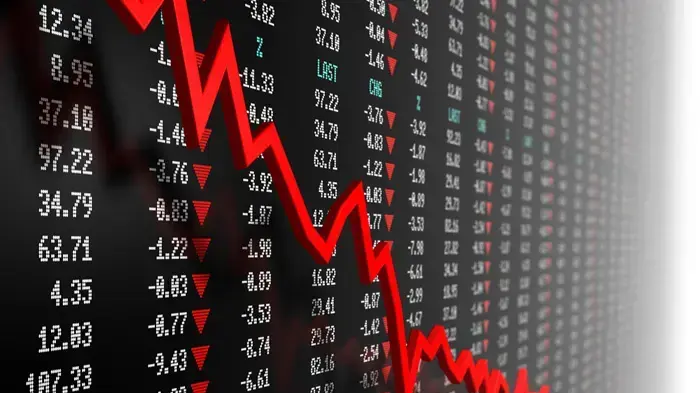Corona lockdown in Cologne, Germany.
In terms of investments, the aftershocks were worse than the epidemic itself (Photo: AP, IP)
At the beginning of 2020, the world experienced an upheaval, a real earthquake in the form of the Corona epidemic, which sowed fears among the public and led its elected officials to almost completely stop the routine of life and the economy mainly in the form of closures.
The beginning of the return to normality was made possible thanks to a vaccination campaign, but while the world began to breathe a sigh of relief and rushed back to shopping malls and consumption, the aftershocks of the Corona emerged in the form of climbing inflation, which, when it began to raise its head, the Russia-Ukraine war broke out, a war in Europe after two decades, since NATO forces had to and to intervene in the Kosovo war.
The war weighed even more on the prices of goods and the problems of international shipping, which failed to satisfy the demands created at once after the Corona virus, and formed the basis for the sharp price increases in many areas. The strong demand for workers also took a toll on businesses in the form of high wage increases, mainly in the USA, and all these together contributed to a sharp increase in the level of prices in general in Western countries (inflation).
Risona demanded that the central banks make a sharp (relative) increase in interest rates, for the first time in two decades, thus causing an increase in the financing expenses of the companies and the price of loans, a decrease in private and business consumption and a decrease in the profitability of the companies.
How the money went: In one year we "managed" to eliminate more than 20% of the value of the portfolio (photo: Walla! system, without)
This is how we lost the war in Ukraine
Hence the first blow to our investment portfolio, which started with an investment of NIS 20,000 and has since lost about a fifth of its value (21.18%), leaving us with about NIS 15,700, after a loss of NIS 4,237 in the last 12 months.
The effect of the increase in interest rates has led some investors to exit the stock markets, and try to take comfort in more solid investment channels, such as bonds, and the blow is noticeable.
Our investment portfolio is spread among 6 major indices in the world's stock markets, which summed up an average negative return of 12.42% in the last 12 months, until for the date examined by Walla! Money and Meariv Business (see table).
The declines were led by the Nasdaq 100 index, which ended the period under examination with a decrease of 28.18%, followed by the Shanghai, S&P500, and MSCI World indices, which concluded a decrease of 13.61%, 13.2% , and 13.12% respectively.
The ones who pulled the yield up - or should it be better to say: lost less - were the Israeli and German economies, the main indices of the stock exchanges in which: the Tel Aviv 35 index and the DAX index ended the period examined with a decrease of 1.82% and 4.63%. The
declines of the stock exchanges may They were the first blow, but not the main one, that our investment portfolio suffered, with sharp declines that hit it from the virtual currencies Bitcoin and Ethereum. These fell by 71.56% and 74.75% respectively, and accounted for 69% of the loss in the portfolio that accumulated to NIS 2926.2 from the investment in both currencies.
More in Walla!
One BAMA with Facebook, Instagram, YouTube and TikTok
In collaboration with BAMA
Part of our loss is related to the drop in digital currency rates (Photo: ShutterStock)
Crypto turned out to be a creep
The collapse and bankruptcy of the FTX platform last November, which claimed to be an exchange for decentralized currencies, along with the announcement of the bankruptcy of the crypto exchange BlockFi this week, do not encourage investment in the field, and it may take a long time for it to recover from this.
The strength of the Israeli economy did indeed contribute to our investment in stocks, along with the strength of the German economy, in that they experienced minor declines relative to the other indices in the world stock markets, but it was the strengthening of the US and European economies that gave the portfolio the expected profits through foreign currency demand for the dollar and the euro.
The exchange rates of the currencies (these against the shekel) contributed 8.72% (dollar) and 0.3% (euro) to our investment portfolio, and were the only profitable segment, which also managed to subtract from our total loss about 180 shekels, and no less importantly - they did not deepen.
Black swans such as the corona epidemic, as the economists call them, will probably continue to land in the international investment lakes more often.
But it is evident that the thing that will affect our money the most is the way in which the central parties will deal with them, and with the spread of their wings that will be felt upon their departure.
We will conclude that we have learned that diversifying the investment portfolio is perhaps the right thing to do, but it does not prevent loss, and that you also need to know how to diversify, and above all - you need to know how to lose and wait for better days in the various investment channels.
Of money
consumption
financial decisions
Tags
Stock Exchange
Goal drops
Bitcoin
investments
Wall Street
Dow Jones
Nasdaq
dollar
Euro

